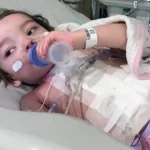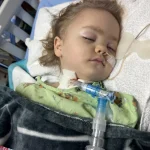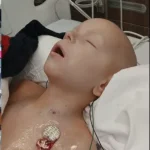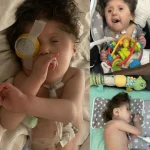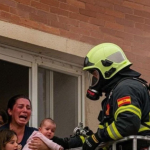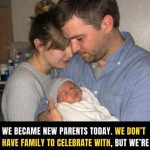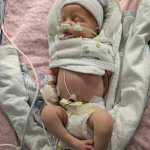One Step at a Time: How Will Keeps Walking Forward After Losing His Leg
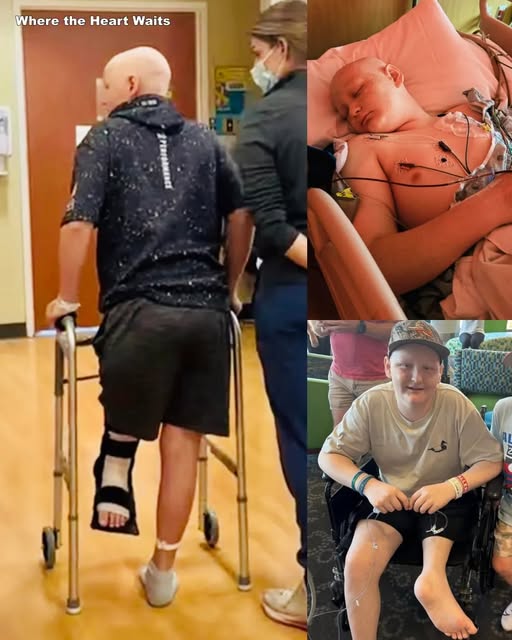
It’s early November, and the Roberts family is on the road again — not for a vacation, but for another chapter in a fight that has already stretched the bounds of what a fourteen-year-old should have to endure. Hospital corridors, long drives, whispered prayers in the dark of night: these are the rhythms of Will Roberts’ life now. These are the routines Jason and Brittney know by heart.
A few months ago, Will was an ordinary kid from Ralph, Alabama. He loved sports, hanging out with his friends, and being a son who made his parents proud in the small, everyday ways parents cherish. Then came the pain that would not go away, the tests, the word no family wants to hear: cancer.
Bone cancer. A medical reality that upends routines and rewrites futures.
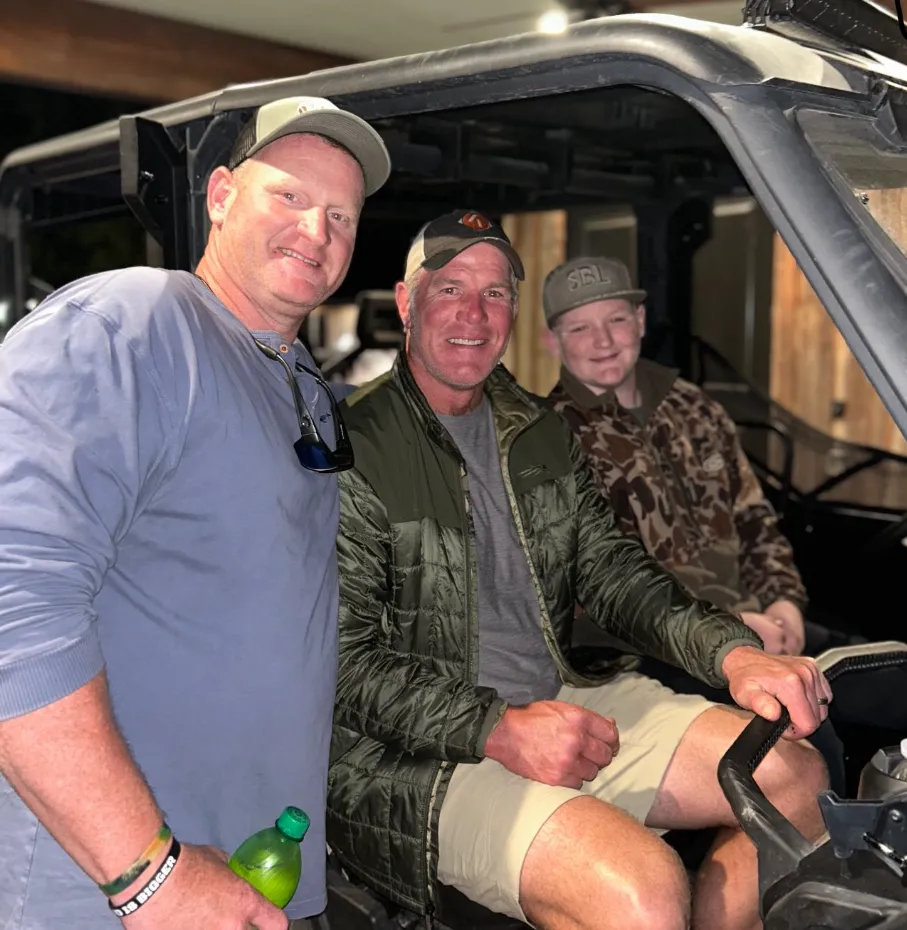
Doctors moved quickly. To stop the disease from spreading, surgeons amputated Will’s left leg. They performed a complex procedure called rotationplasty — an operation that can look frightening at first glance. The ankle and foot are reattached backward to the knee so the foot can later function as a pivot for a prosthetic. It’s a radical solution, but it can offer real mobility and independence.
For a while, hope returned. Will’s smile slipped back into place. He learned to balance, to laugh at the strangeness of it all, to imagine a life when a prosthetic would carry him across the gym floor or down a hallway.
Then the cancer came back — this time in his bladder and pelvis.
The family’s calendar filled with appointments, scans, and decisions. This week’s itinerary reads like a map of both possibility and peril: prosthetic fitting in New York City, then onward to Houston for another surgery scheduled for November 11th. Each mile traveled is both a logistic challenge and a test of spirit. Each appointment is a small pivot toward something that might finally slow the disease.
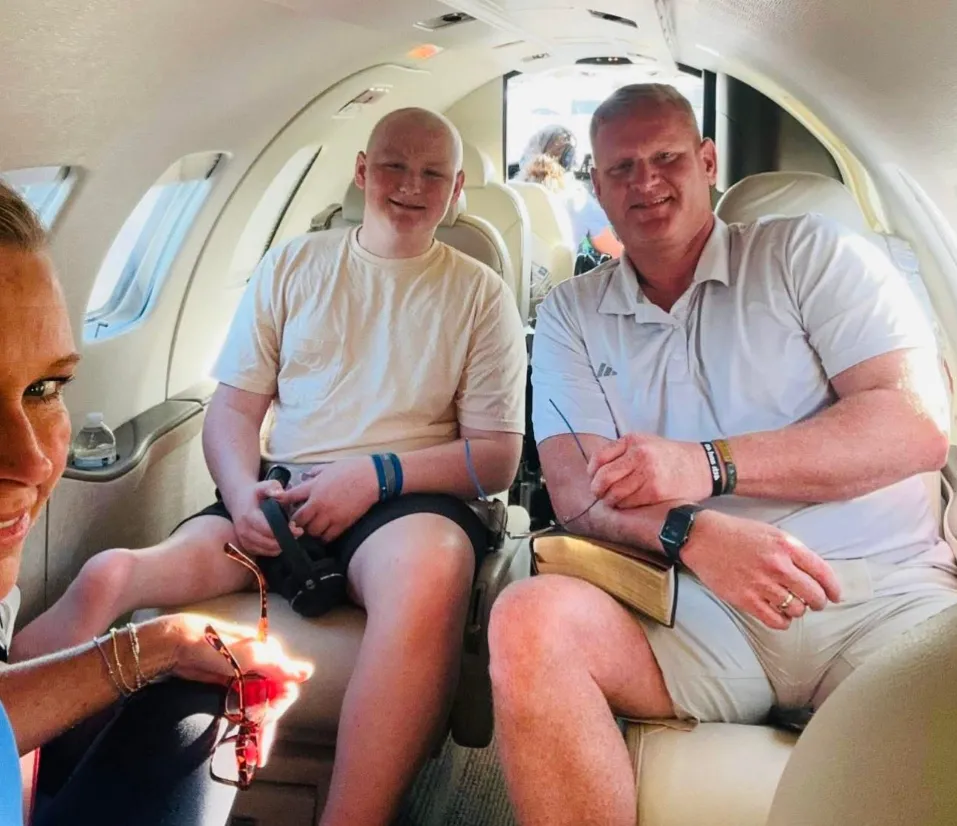
The Boy, the Procedure, the Prosthetic
At fourteen, Will has already learned the language of hospitals. He’s heard the clinical phrases, endured the needles and chemo, and sat through consults that ask whether enough is enough. But the language he prefers is simpler: jokes with nurses, teasing his parents, and the stubborn, ordinary hope of a boy who wants to play again.
Rotationplasty was chosen because it offered the best chance for long-term mobility. It’s not the route everyone takes, and it’s not easy to accept. For Will, the decision was made with eyes on the future. If his ankle could become a functioning joint for a prosthetic, then the future might still hold real steps: in sneakers, on a field, toward independence.
Tomorrow, in a clinic in New York City, he will be fitted for that new prosthetic. It’s a milestone that matters in ways beyond the physical. Fitting day means choices about how he will move, what kind of activities will be possible, and how he will present himself to the world. It’s both practical and profoundly symbolic: a small, tangible instrument of agency after months of treatment that often feels like being carried along by someone else’s decisions.
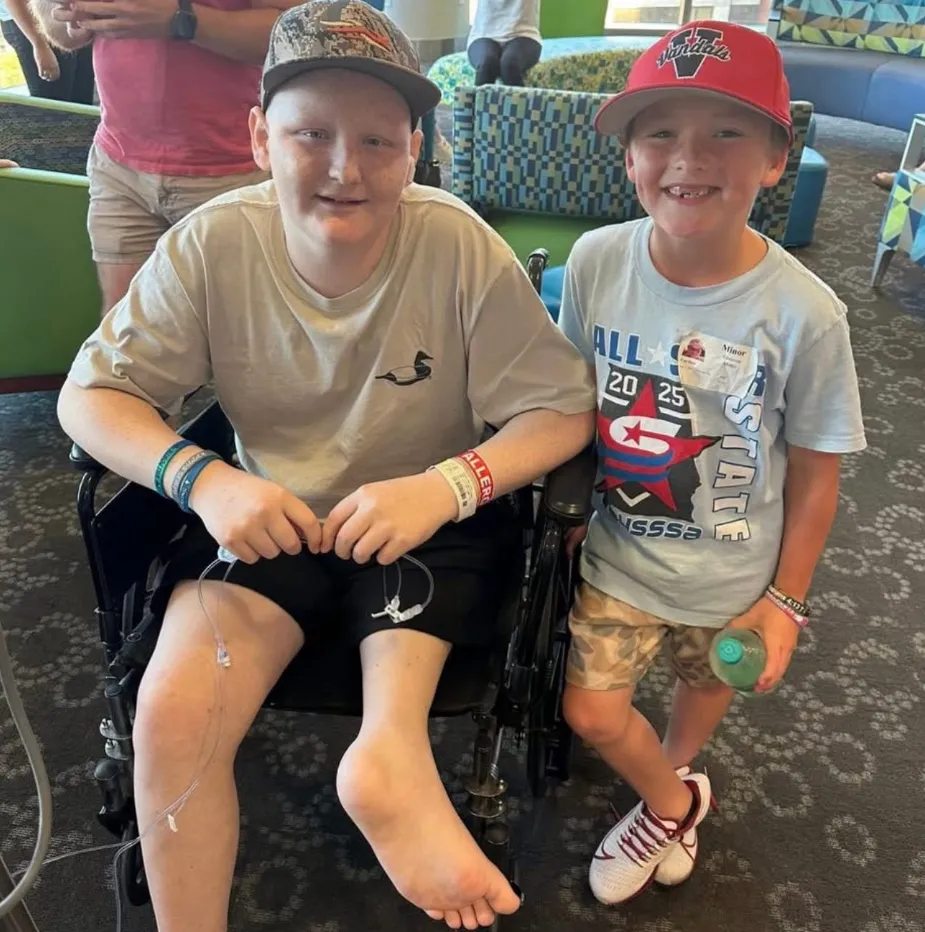
The Parents at the Wheel
Any account of Will’s courage is inseparable from Jason and Brittney’s endurance. They navigate the logistical maze of pediatric oncology while trying to be anchors for their son. They are the ones who make long phone calls to insurance, who sleep in chairs by hospital beds, who try to explain complex medical choices in a way that still leaves room for a teenager to be a teenager.
“Some nights we sleep in a folding chair and whisper like we’re not allowed to be loud,” Brittney confesses. “But we always hold his hand. That’s the only thing that matters.”
Jason speaks with steady, practical resolve. He drives the distances, coordinates the second opinions, and makes sure the smallest comforts — a favorite snack, a playlist, a joke — make their way into sterile rooms.
Their faith shapes how they face uncertainty. Will’s family often turns to prayer, not as a cure but as a lens that helps them see possibility. They’ve learned that faith and medicine can coexist: one comforts, the other acts. And they place their hope in both.
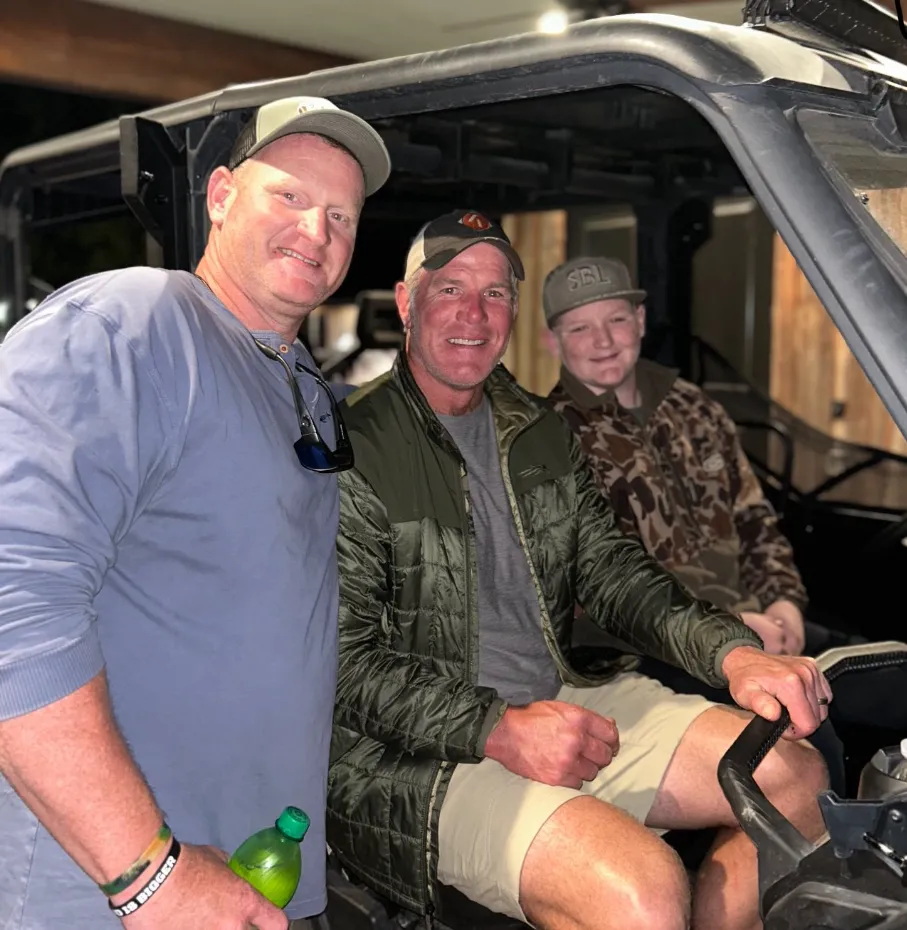
Moments That Matter
If the story of Will’s treatment is largely medical appointments and scans, it is also punctuated by moments of life that remind the family — and the wider community — what they are fighting for.
Last weekend, Will took a break from the hospital routine to do something he had not expected: he went hunting in Mississippi with Brett Favre, the legendary NFL quarterback. The meeting wasn’t spectacle; it was simple and human. Favre treated Will like a friend, not a patient. They shared jokes, stories, and the kind of easy company that years of hospital visits often deny a child.
“It felt like normal,” Will later said, which in many ways was the best medicine. For a little while, the beeping machines and clinical smells faded. He was just a boy again, laughing and breathing fresh air.
Those ordinary flashes of life — a fishing trip, a favorite meal, a family movie night — are what the Roberts hold onto. They’re the reason to travel from Alabama to New York to Houston and back again.
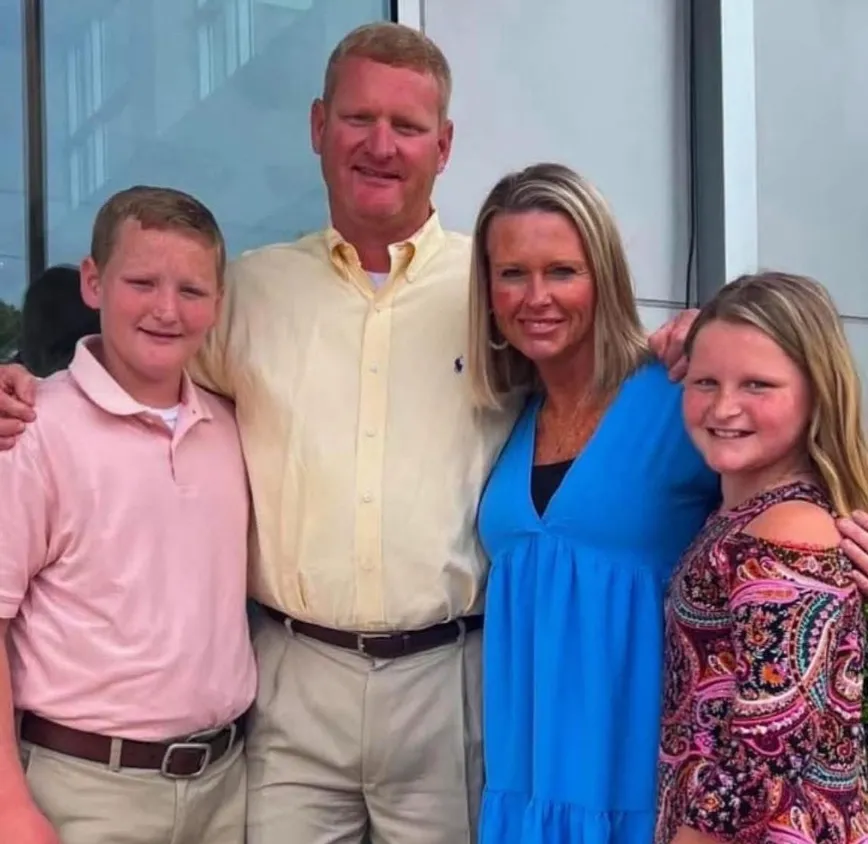
Community, Kindness, and Quiet Support
Throughout their ordeal, the Roberts family has not walked alone. Friends, neighbors, and strangers have rallied in small and generous ways: meals dropped at the door, fundraisers to help cover medical bills, prayers whispered across state lines. On social media, messages of encouragement thread through days marked by fear.
“People say ‘let us help,’” Jason says. “And then they do. They mean it.”
It’s a reminder that medical crises are not just medical. They’re social phenomena that test the strength of community. Good neighbors, a church group’s casserole, a high school friend’s fundraiser — these things compound into a net that catches families when they fall.
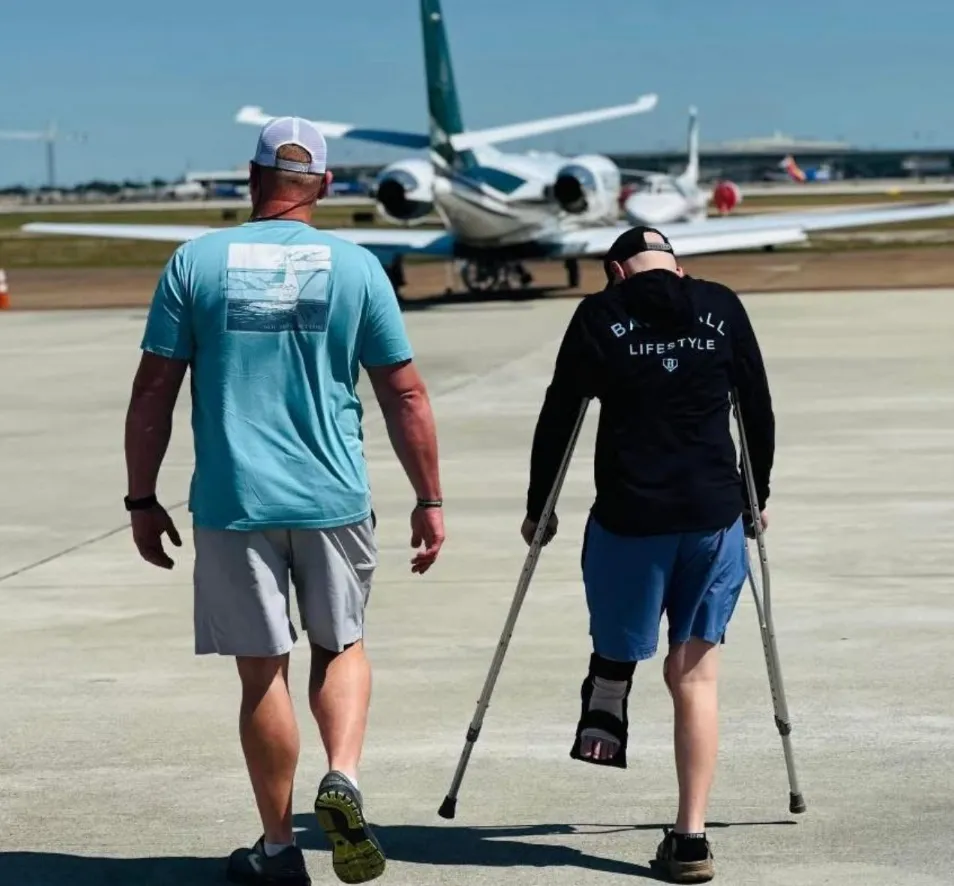
The Tough Days
Not every day offers a victory. There are nights when chemo makes Will sick, mornings when tests reveal inconvenient truths, and times when hope feels thin. Anxiety rides close on the heels of love, and parents can mistake a quiet breathing for a sign that things will be okay.
“We have bad days,” Brittney admits. “But we also have moments. That’s what gets us through.”
Practically, the next surgery looms as something both necessary and terrifying. November 11th is circled on the family’s calendar like a fate and a promise. The medical team hopes to remove the cancerous cells in Will’s bladder and pelvis. If successful, it could meaningfully change the arc of his treatment. If not, the family will continue to adapt, to find the next path forward.
Either way, their focus is on the small steps — literal and metaphorical — that build a life.
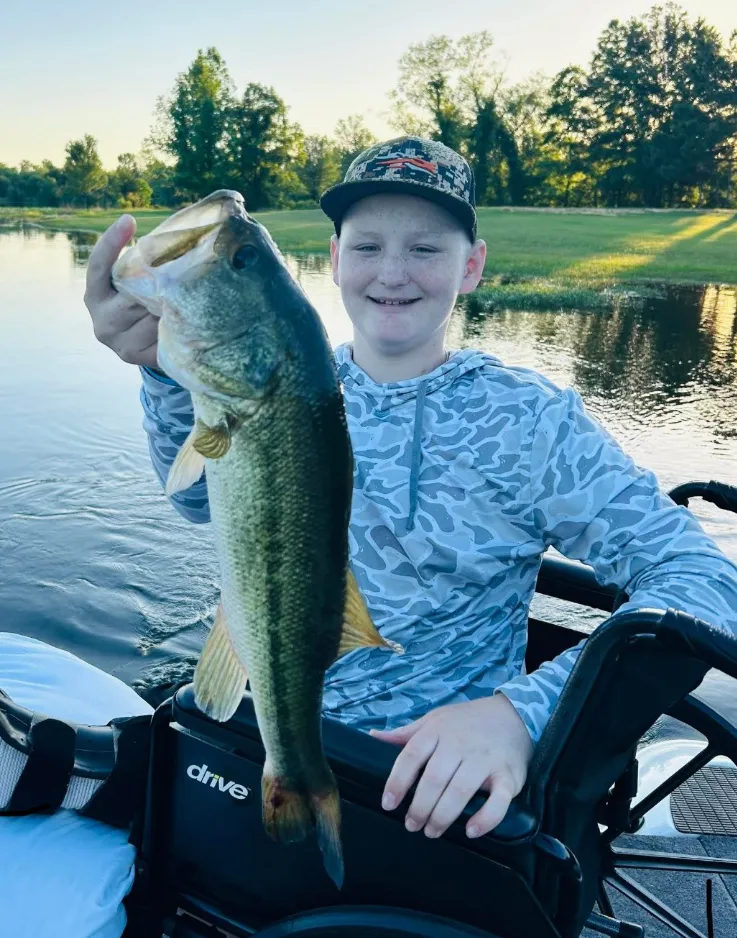
Courage That Isn’t Loud
What Will shows, quietly but insistently, is that courage isn’t always dramatic. It can be the decision to stand up to walk a few more steps with a walker. It can be laughing when pain is present. It can be liking a photo or answering a text when the body says rest.
He credits his faith: “God’s got me,” he says simply. But he also credits those who stand with him — his parents by the bedside, the nurses who remember his favorite snacks, the friends who send goofy memes. Courage, in Will’s life, looks like a thousand tiny acts of support.
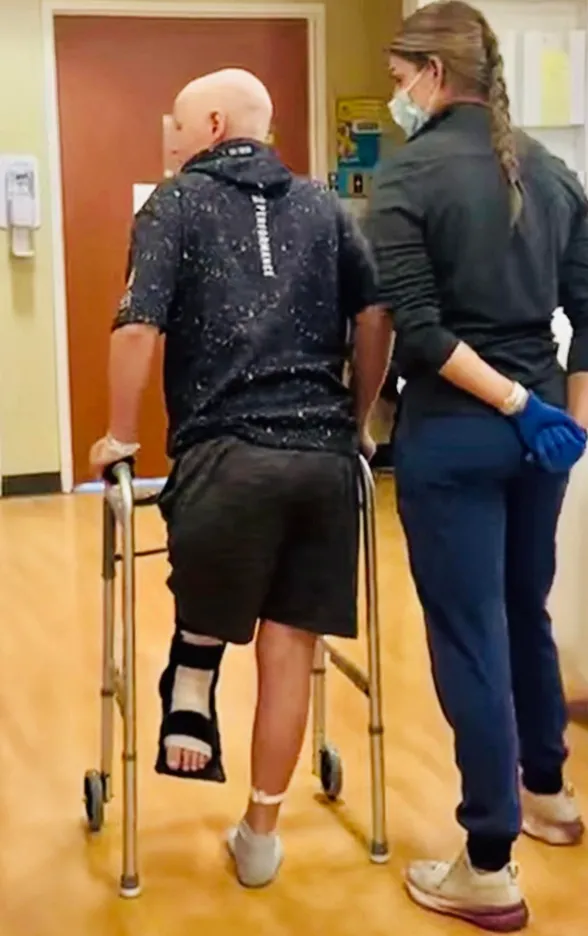
Looking Toward a Future of Steps
There is a practical optimism in prosthetic fitting that is easy to miss if you only focus on the medical drama. A successful fitting means new wardrobes, new routines of physical therapy, and — most importantly — new possibilities. In the months after the prosthetic is fitted, Will will learn to walk, to run, to jump in ways that will surprise him.
The first time a child takes confident steps on a new prosthetic, something shifts. Confidence blooms. Identity reasserts itself. For Will, those future steps are milestones the family already celebrates in imagination.
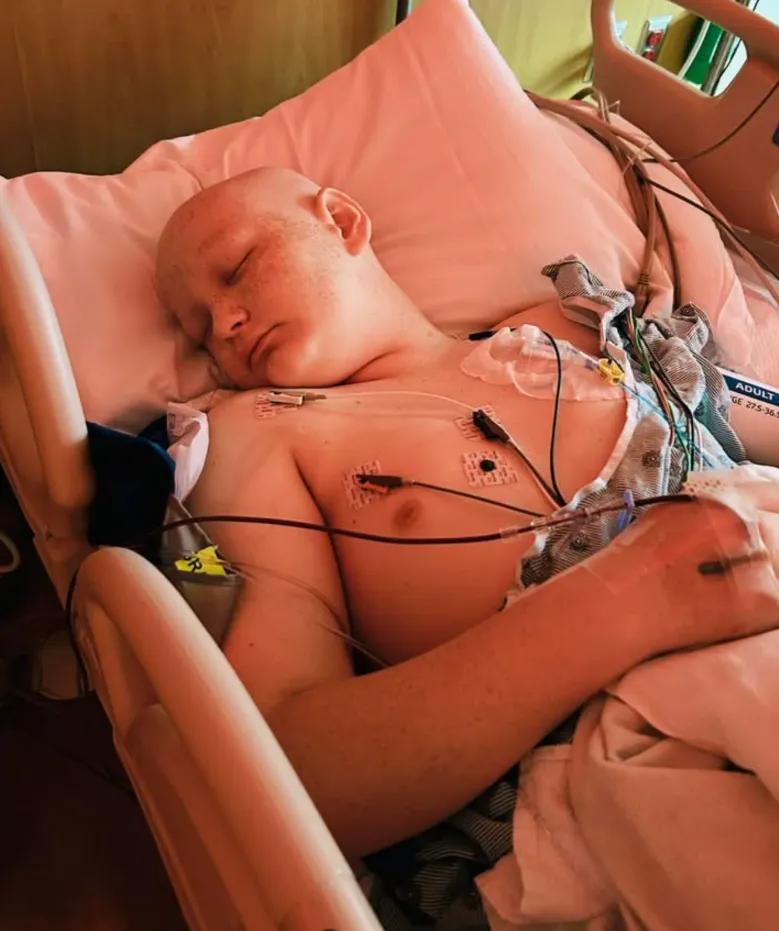
What We Can Learn
Will’s story is one of modern resilience but it also asks something of us. It asks communities to make room for families whose days are consumed by illness. It asks readers to consider the small ways we offer help: a meal, a message, a fund. It asks us to recognize that courage is not just the child in the hospital bed, but the parents who navigate nights without sleep, the nurses who return with a smile, and the strangers who become friends.
And it asks us to remember that hope is not fragile — it is persistent. Even in the hum of medical machines, hope persists as a force that helps people walk forward.
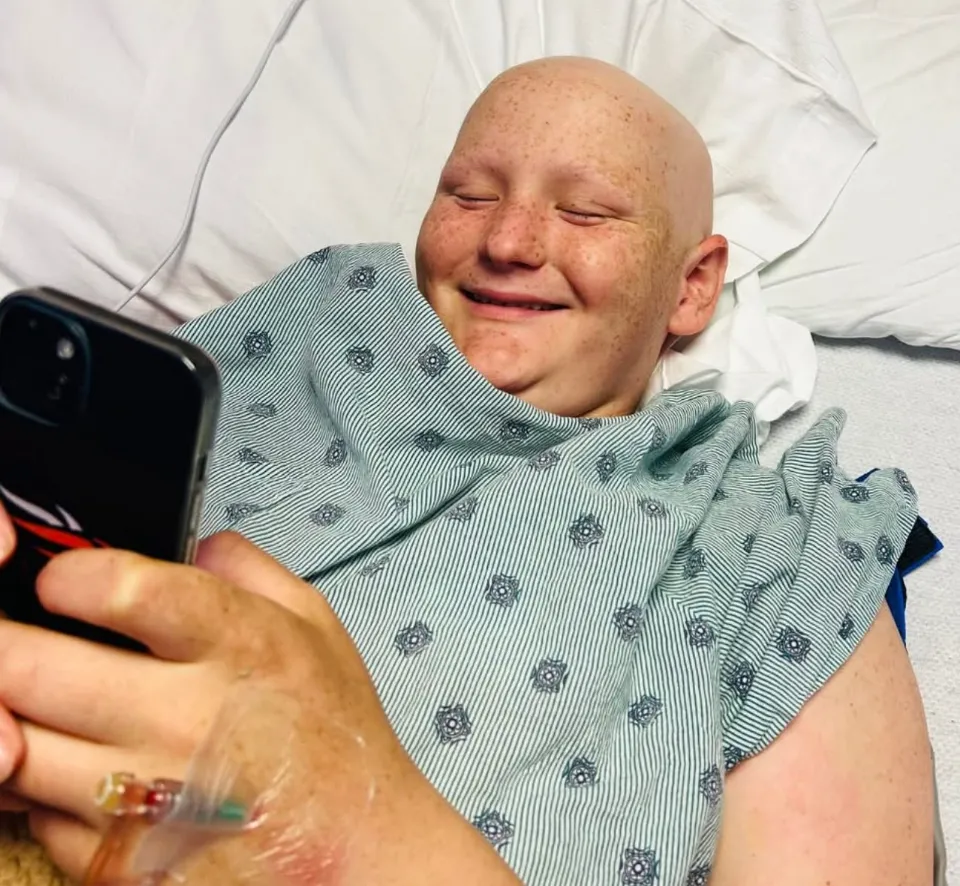
One Step at a Time
When Will takes his first steps on his new prosthetic, there will be cheering — maybe private, maybe public. But whether or not we see him on that day, he will have already taught something essential: life continues in small motions. It is stitched together by seconds of bravery and hours of ordinary tenderness.
For Will, Jason, and Brittney Roberts, life now is made of these stitched moments. There will be hard days ahead; there will also be days when joy cracks the gray open.
They are taking it one step at a time.
